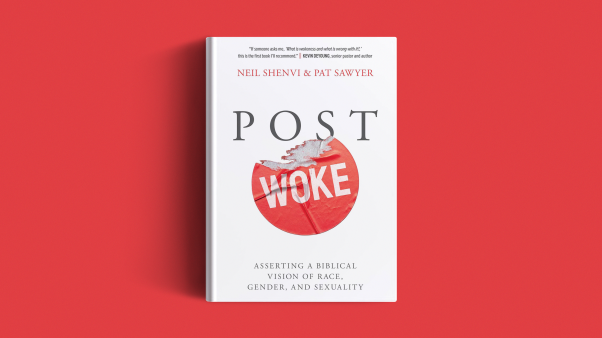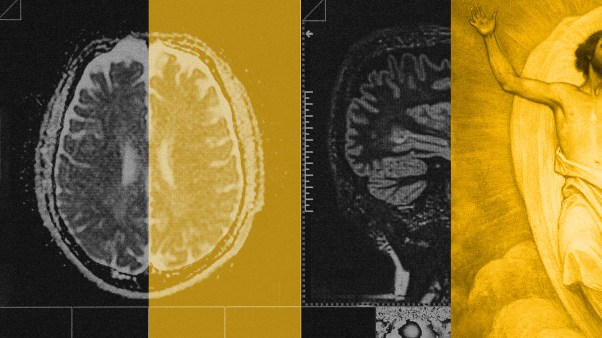Conference speakers say behavior thought to be demonic is usually caused by mental illness.
In 1488 two Dominican priests wrote a book describing how demon possession could be diagnosed and treated. The book, The Witch’s Hammer, was a best seller through its 19 editions over 150 years. The priests prescribed that victims of demon possession be drowned or burned to death.
It is estimated thousands died as a result of the priests’ advice, according to psychiatrist Christian Hageseth, one of several to address a professional seminar called “Satanism and Neo-Paganism.” Hageseth said it is likely that many of these victims were not demon possessed, but suffered from chronic depression or personality disorders.
The seminar, held last month in Berkeley, California, was sponsored by Spiritual Counterfeits Project (SCP) and Evangelical Ministries to New Religions. It was held in conjunction with a similar conference on deception and discernment, tailored for lay people.
Speakers at the two conferences included sociologists, counselors, and researchers who regularly confront the effects of evil, including deception and Satan worship. Theologian J. I. Packer was on hand to provide a theological perspective on evil.
Hageseth and other speakers emphasized that much of what is thought to be supernatural activity is best explained in psychological or physiological terms. “The rate at which people diagnose [demon] possession is inversely proportional to their education in the behavioral sciences,” said Hageseth, only half jokingly.
He lamented, for example, that people are sometimes told they are possessed when the real problem is a biochemical disturbance of the brain that can be treated with drugs. Hageseth said Satan is an “intelligent adversary with agents that work,” adding that “the powers of darkness thrive on ignorance.”
Another speaker, Danny Korem, echoed the same theme on a different level. A magician, Korem produced a variety of “effects,” including “psychokinetic” spoon bending and levitation (for a private audience). But each time he dazzled his onlookers, he assured them the magic had a logical explanation. Many times, Korem said, “Satan deceives us with a lie, not with a real supernatural power.” (See interview on page 32.)
Korem regularly works with law enforcement authorities to investigate perpetrators of fraud. He also seeks to debunk palm readers, psychics, and others who make a profit as a result of claiming supernatural or superhuman powers. He said this job is not easy because people are fascinated by the mystical and most “don’t want to be told that these phenomena are not real powers.”
Trends
The two conferences enabled many “cult watchers” to compare notes and discuss trends. A lot has changed since organizations that study new religious movements began to emerge about two decades ago in response to groups like the Unification Church and the Children of God.
Westmont College sociologist Ronald Enroth said the once-common practice of kidnaping and deprogramming has nearly stopped. Not only do kidnapers face legal liabilities, Enroth said, but many feel deprogramming can do more psychological harm to youths than can a passing experience in a cult group.
James Bjornstad, academic dean at Northeastern Bible College, said cult analysis in the early days consisted mainly of theological evaluation. Today, he said, more analysis is done from a behavioral science perspective.
Another trend cited by Bjornstad is the emergence of groups on the fringe of traditional Christianity. He and other specialists attending the conference said they are frustrated at the public’s perception of their evaluations of Christian fringe groups. “Because we have the reputation of being ‘cult-watchers’,” Enroth said, “whenever we critique a Christian group, people think we’re saying the group is a cult.”
The ambiguity of the term “cult” worked against SCP in a prolonged legal battle with the local church, a battle that ended last year. Local church lawyers maintained SCP had put the local church on the same level as cults such as the one led by Jim Jones. SCP spokesmen, however, maintain they never considered the local church a cult in that sense.
“Especially since Jonestown [where some 900 people died in a 1978 mass suicide],” Enroth said, “the concept of cult has diminished in its usefulness.” He said he would be glad to see the word “cult” dropped from the vocabulary, but added it has become a media term and is “probably here to stay.”
Those who analyze new religious movements say the question “Is this group a cult?” often does not have a definite answer. Thus, they say even thoroughly Christian groups sometimes engage in potentially dangerous, cultlike practices.
Some who gathered in Berkeley served on a committee that evaluated the campus organization Maranatha Christian Church. The committee in 1984 issued a statement that said, among other things, Maranatha “has an authoritarian orientation with potential negative consequences for members (CT, August 10, 1984, p. 38).” Bjornstad, who chaired the committee, said he has since had “friendly contacts” with Maranatha president Bob Weiner. Bjornstad said, however, there are no plans for a formal reassessment of the group.
RANDY FRAMEin Berkeley
Waging War Against Deception
Danny Korem is a world-class magician and producer of documentary films. He also works as an investigator in cooperation with law enforcement authorities. One of his purposes is to expose those attempting to build cult followings by claiming to have supernatural powers. Korem’s film, Psychic Confessions—syndicated last year on commercial television—garnered high Nielsen ratings. The documentary virtually halted appearances of self-proclaimed psychics on television shows like “That’s Incredible.” Korem was a major speaker at last month’s Berkeley conference on deception and discernment, sponsored by Spiritual Counterfeits Project and Evangelical Ministries to New Religions.
What do you try to accomplish through your work?
Today the art of magic is so sophisticated that Houdini would be lost if he were alive. People are extremely vulnerable to all kinds of deception. It’s far more than just sleight of hand. It entails the short-circuiting of the judgmental process. There is very little known on the street about how this happens. I try to communicate these principles on a popular level. My goal is to counter deception. When a person gains a following or gets rich by convincing others he has special powers, that is wrong, and it can also be very dangerous.
Do humans actually possess psychic powers such as extra-sensory perception or psychokinesis [the ability to move objects with the mind]?
If you mean by psychic abilities things the mind can do in and of its own ability, I say it’s not possible. That’s what you find when you investigate case after case after case. Tens of millions of dollars have been spent on research in this area, and there has never been a verifiable demonstration of human psychic power.
What do you say about those who claim to have such powers?
Everything they do can be explained in natural terms largely in accordance with the principles of physics. People are deceived because they don’t know the modus operandi behind the effects that are produced.
What do you believe about the supernatural?
I believe in God. History’s greatest supernatural event is the Resurrection. I have spent lots of time examining this event as I would examine other events that seem to have no natural explanation. Though it took place 2,000 years ago, we have enough information today to convince me it happened. I’ve heard all the best arguments against it, and speaking as one trained in these things, I’ve never heard one that made sense.
In your work, have you ever encountered the supernatural?
Only once, and not directly. A pastor I know dealt with a case of what I think was true demon possession. I might add that I receive scores of calls about alleged demon possession. Most of them involve people who don’t need demons cast out. What they need is counseling or medical treatment.
Some believe that people with supernatural powers get their powers from Satan.
According to Scripture, it is possible for Satan to give people supernatural powers. But I don’t believe he usually works that way. Regardless of whether deception is directly inspired by Satan, it’s still wrong. Since Satan is the father of lies, there is a sense in which all deception is Satanic.
When you speak to Christians, how is your message received?
It takes people some time to grasp the concepts. But overall I find the church very willing to accept that many things we have traditionally thought were real powers are actually conterfeit claims. Some might think this idea would be most unpopular in the Pentecostal community. But I’ve met with many Pentecostal church leaders who are anxious to see these things exposed. In fact, nobody has opposed what I’m trying to do except the “psychics” and others who are perpetrating the fraud.










